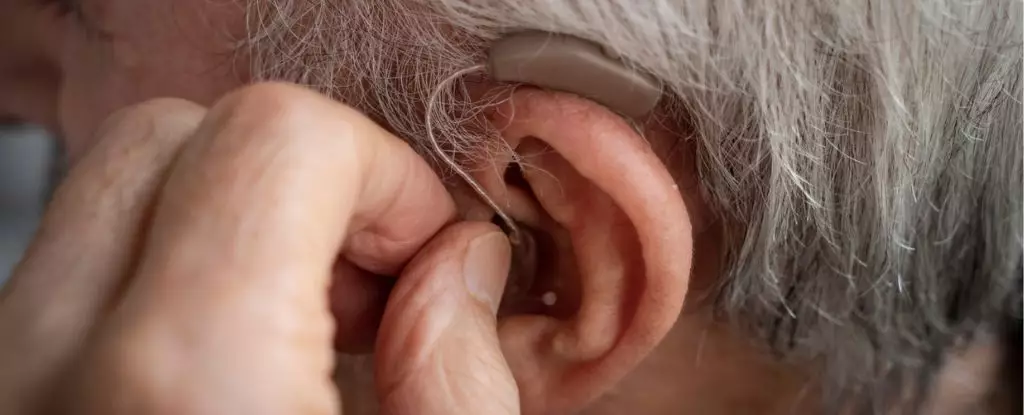As research continually explores the intricate relationships between sensory health and neurodegenerative diseases, a striking link has emerged between hearing loss and Parkinson’s disease. Recent findings from a comprehensive study involving over 3.5 million veterans suggest that individuals suffering from hearing loss may face a heightened risk of Parkinson’s disease diagnosis, with the implications of hearing aids providing a proactive approach to potentially mitigate this risk.
Executed by a team led by neurologist Lee Neilsen at Oregon Health and Science University, this study examined a predominantly middle-aged, white male population of veterans over a significant period. The researchers detailed varying degrees of hearing impairment, ranging from mild to profound, and tracked the cohort for nearly 20 years. Notably, the results indicate that hearing loss is not merely a benign aging concern but may represent a critical, modifiable risk factor for developing Parkinson’s disease, as well as cognitive decline.
The findings illuminated alarming statistics: veterans with mild hearing loss exhibited an increased cumulative incidence of Parkinson’s over the follow-up period. Specifically, for every 10,000 individuals screened, an additional 10 cases of Parkinson’s were directly associated with the presence of mild hearing loss. This connection paves the way for a broader discussion regarding the importance of early diagnosis and intervention.
One of the most significant insights derived from this study is the potential role of hearing aids in diminishing the risk of developing Parkinson’s disease. Participants who utilized hearing aids displayed a markedly lower likelihood of an eventual diagnosis when compared to their peers who did not employ these devices. This benefit became apparent just one year after the initial hearing evaluations, demonstrating that timely intervention may play a crucial role in safeguarding cognitive health.
With evidence suggesting that the longer an individual suffers from hearing loss, the increased risk for cognitive decline manifests, the implications underscore the urgent need for public health policies that advocate for routine hearing screenings—especially among older adults. It raises critical questions about whether hearing aids work to fortify neurocognitive health through restoration of lost sensory input or whether they alleviate cognitive load by reducing the mental strain associated with processing sound.
This intricate relationship between hearing and neurodegeneration warrants further exploration. While it is well-documented that vision issues and smell loss can precede Parkinson’s symptoms, this study makes a case for considering hearing loss as another vital element in the early detection and treatment of the disease. It may share a similar neurological underpinning; as the brain works harder to process sounds in the absence of clear inputs, it could be straining cognitive resources more than those with healthy hearing. This strain may accelerate the neurodegenerative processes tied to diseases like Parkinson’s.
Moreover, auditory restoration through hearing aids potentially enhances social interactions and reduces loneliness—factors that are strongly correlated with mental health and cognitive functioning. The multifaceted benefits of hearing aids extend beyond mere auditory improvement, potentially creating a more robust neural connection that guards against cognitive decline.
Given the compelling evidence linking hearing loss with an increased risk of Parkinson’s disease, it is crucial that healthcare providers adopt a more proactive stance towards hearing screenings, particularly in primary care settings. Often overlooked, hearing assessments could be a non-invasive and valuable tool in monitoring patients’ long-term cognitive health.
As we continue to uncover the complexities of the human brain and its interaction with our senses, attention to hearing loss may prove essential in thwarting the progression of debilitating neurological diseases. The recommendation stands clear: screens should be mandatory, even in cases where patients do not voice concerns over their hearing abilities.
The connections drawn between hearing aids and a lower incidence of Parkinson’s disease open new avenues for research and public health strategies, advocating for a more integrated approach to preventing neurodegenerative disorders through improved auditory health. With further studies and randomized clinical trials on the horizon, the healthcare community may soon possess the evidence needed to support widespread adoption of these strategies, enhancing both quality of life and longevity for millions.


Leave a Reply